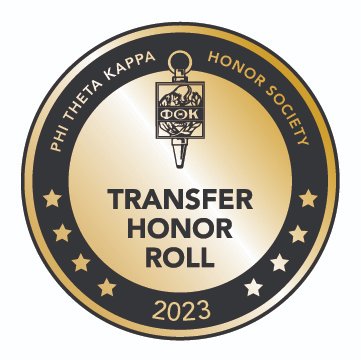
The honor distinguishes the university’s efforts to support transfer students.
Texas Tech University is among 208 colleges and universities named to Phi Theta Kappa (PTK) Honor Society's Transfer Honor Roll in recognition of the dynamic pathways created to support transfer students.
The Transfer Honor Roll is determined by 40 key metrics related to the support and success of transfer students, including college cost and financial aid, campus life, admission practices and bachelor's degree completion. The Transfer Honor Roll is based on analysis from the National Student Clearinghouse and data submitted through the four-year institution's profile on PTK Connect, Phi Theta Kappa's online tool designed to help students find their best-fit colleges and career pathways.
“We're pleased to again be recognized for the work that we've done to create a transfer experience that is exceptional at Texas Tech,” said Jason Hale, assistant vice president of enrollment management. “We are honored to be chosen again this year, and we'll continue to work at creating stronger pathways to bachelor's degree completion for all students.”
Colleges completing the PTK Connect profile are given a transfer friendliness rating. The honor roll is chosen from among the top 25% of highest-rated colleges.
Spotlighted at the 2023 American Council on Education (ACE) conference, the Transfer Honor Roll recognizes the importance of creating strong transfer pathways that lead to excellence and success among community college transfer students. This year's winners had exceptional outcomes, several of which included:
- Average percent of transfer in undergraduate population – 43%
- Average bachelor's degree completion rate among transfers – 66%
- Average credit transferred toward a degree major and/or plan – 85%
- Average percent of transfer students receiving merit-based financial aid – 73%

